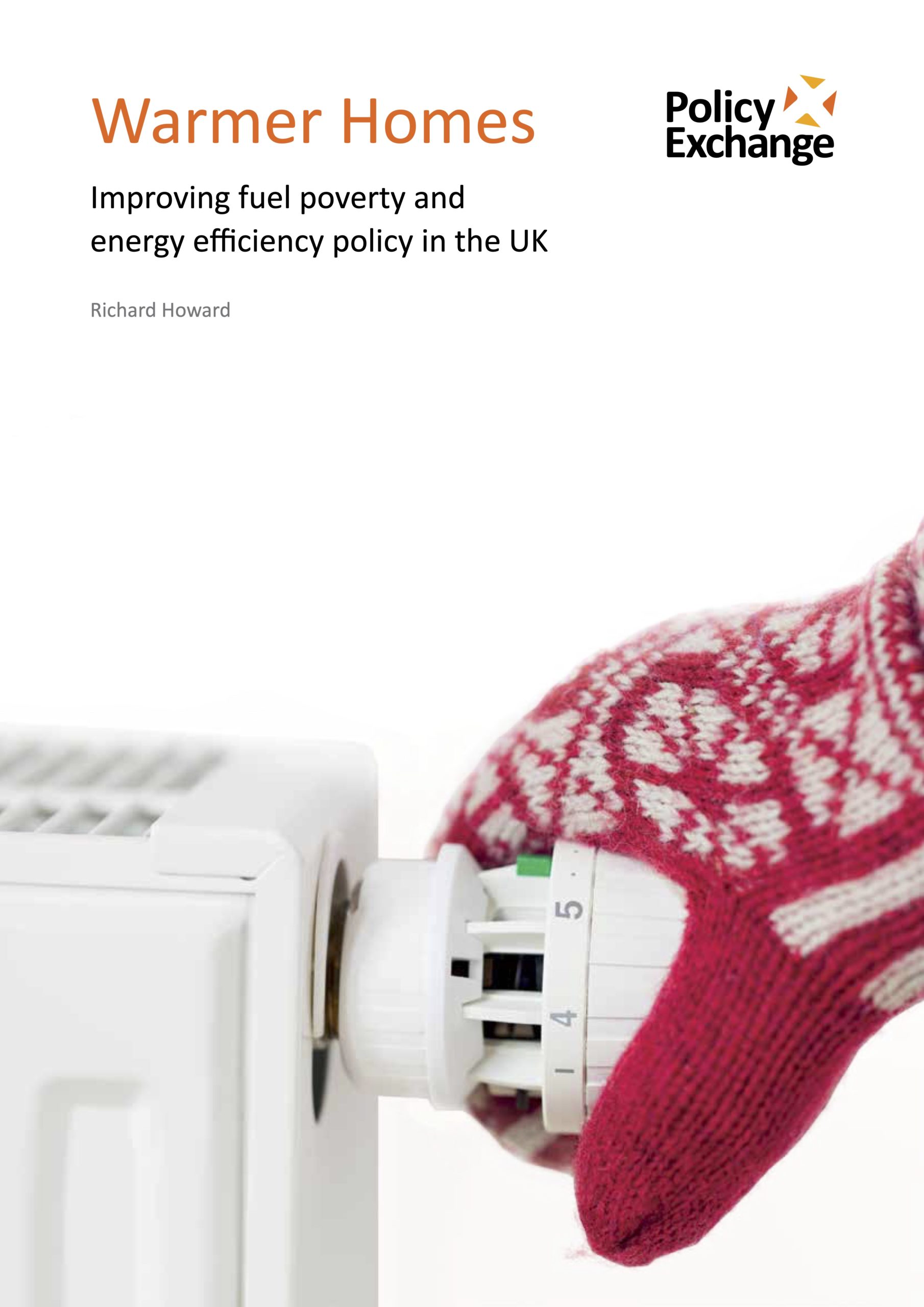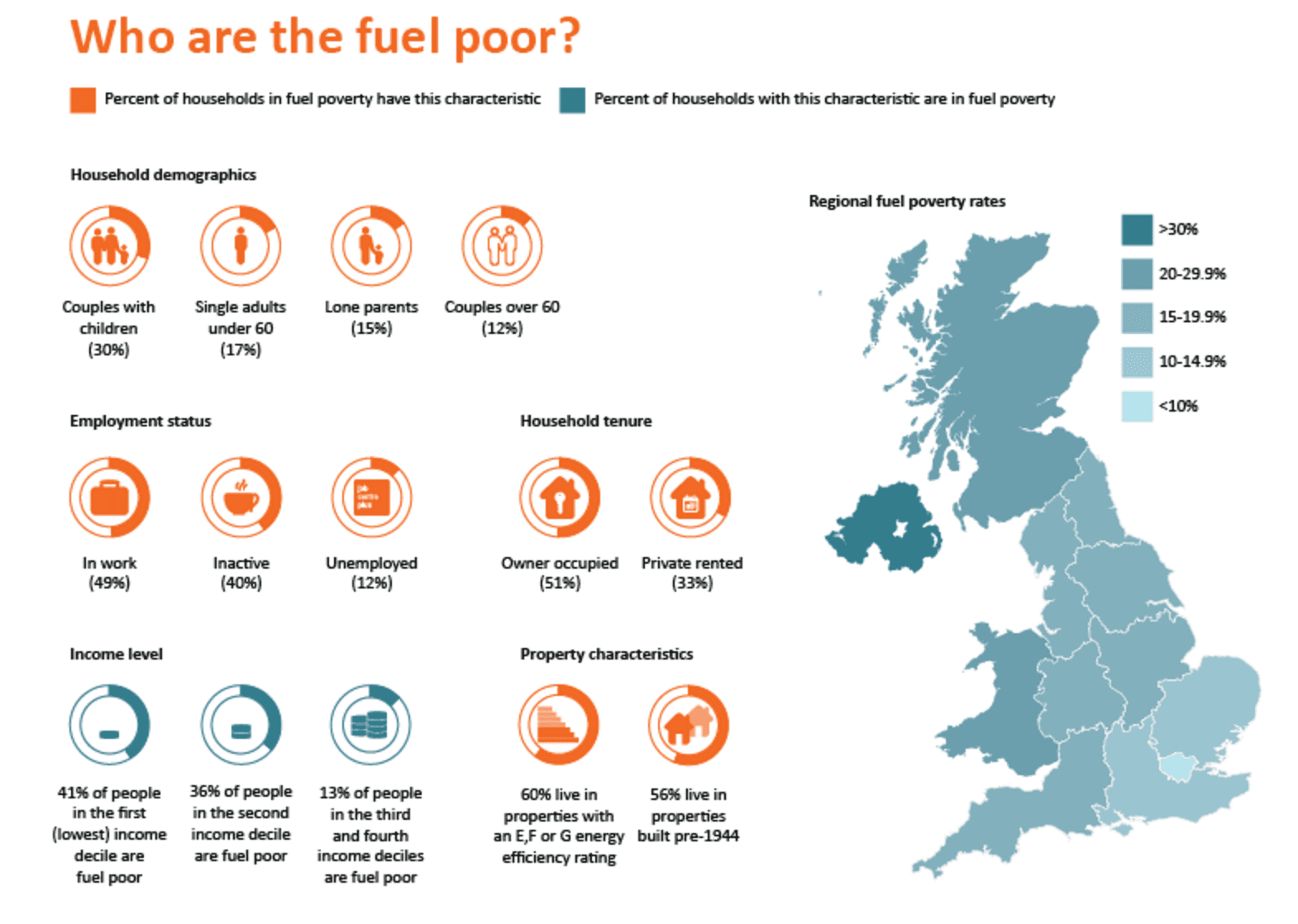
Warmer Homes: Improving fuel poverty and energy efficiency policy in the UK
Warmer Homes presents a character profile of the 2.3 million households in England living in fuel poverty. It finds that over 1 million households who cannot afford to heat their home to a comfortable level are in work, while also revealing that the households living in the least energy efficient properties would have to spend as much as £1,700 extra a year to heat their home to a suitable temperature.
It suggests that fuel poverty is a complex problem affecting a broad cross section of people – from low income working households to pensioners.
The statistics show that:
- Half of all fuel poor households (49%) in England are in work – or just over 1.1 million households.
- 10% of all households in England are in fuel poverty – but this rises to 19% of households living in private rented accommodation.
- Households in the most energy inefficient properties would have to spend up to £1,700 extra a year to heat their homes to a suitable level (between 18 and 20 degrees Celsius). The problem is most severe in older, detached properties, particularly those in rural areas off the gas grid.
- Fuel poverty has been made worse by rising energy bills – consumer gas prices increased by 128% over the period 2003 to 2013.
- Despite some recent improvement, the UK’s housing stock remains woefully inefficient compared to other European countries.
The report highlights flaws with the current fuel poverty strategy. The government target is to move all fuel poor homes in England to a ‘Band C’ energy efficiency rating by 2030, at an estimated cost of £1.2billion a year. However, the government is spending less than half of what is required (£490million a year) leading to a £700million per year funding gap.
Policy Exchange acknowledges that the funding gap cannot be met through increased taxation at a time of economic uncertainty and squeezed household budgets. The paper, therefore, sets out three ways of meeting the funding challenge within existing budgets:
- Energy efficiency subsidies should be more focused on fuel poor households. At present, only 33% of fuel poverty funding actually benefits the fuel poor. Refocusing the Energy Company Obligation (ECO) scheme on fuel poor households would raise £375million a year to allocate to fuel poor households.
- Only 10% of Winter Fuel Payment recipients are actually in fuel poverty. Introducing an ‘opt-in’ for the Winter Fuel Payment could save £400million a year which could be reallocated into energy efficiency measures for the fuel poor.
- Energy efficiency should be viewed as a ‘Top 40’ national infrastructure priority – utilising some of the government’s £100billion infrastructure budget over the next five years.


